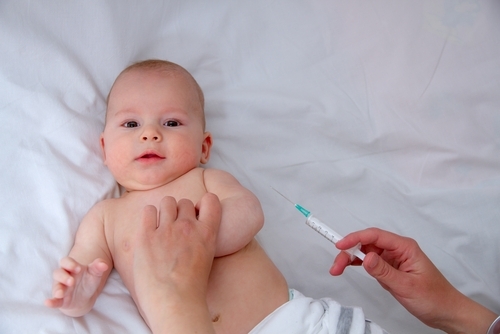The number of children who have had their measles, mumps and rubella (MMR) vaccine has dropped to its lowest level since 2011/12, according to the latest figures.
NHS Digital’s ‘Childhood Vaccination Coverage Statistics’ report, published today, found that coverage for nine of the 12 routine vaccinations declined in 2017/18, compared with the year before.
This comes as PHE urged patients to check with their GP that they have had two doses of the MMR vaccine, following a spike in cases.
The annual report collects data on vaccine coverage at ages one, two and five years of age, for routine vaccinations.
It found that only the rotavirus vaccine had an increase in coverage, from 89.6% in 2016/17 to 90.1% in 2017/18.
Coverage for the five-in-one vaccine (Diphtheria, tetanus, pertussis, polio and Haemophilus influenzae type b) at 12 months fell from 94.7% in 2012/13 to 93.1% in 2017/18.
It is the fifth successive year coverage for this vaccine has fallen in children aged 12 months, although coverage at 24 months remained above the 95% target.
Meanwhile the MMR vaccine coverage fell in six of the nine English regions, with the highest level (94.5%) in the North East, and the lowest (85.1%) in London.
Nationally, MMR coverage – as measured at two years – decreased to 91.2% in 2017-18 for the fourth year in a row. This is lowest it has been since 2011/12.
Coverage also decreased at five years, dropping from 95% to 94.9% for the first dose and 87.2% for the second.
Across all routine childhood vaccinations, the North East had the highest coverage in 2017/18, and London had the lowest.
British Society for Immunology chief executive Dr Doug Brown said: ‘We are currently witnessing the impact of this lower vaccination rate in the ongoing measles outbreak in England. To date, 876 cases of measles have been confirmed this year, more than three times the number recorded in the whole of 2017.’
He added: ‘We need to redouble efforts to ensure that vaccination rates improve and that our communities benefit from continued protection against this serious disease.’
GPs were recently asked by local public health teams to trace patients who have come into contact with measles, a request which the BMA said practices were not obliged to follow, as it does not come under the GMS cotract.
Pulse October survey
Take our July 2025 survey to potentially win £1.000 worth of tokens













